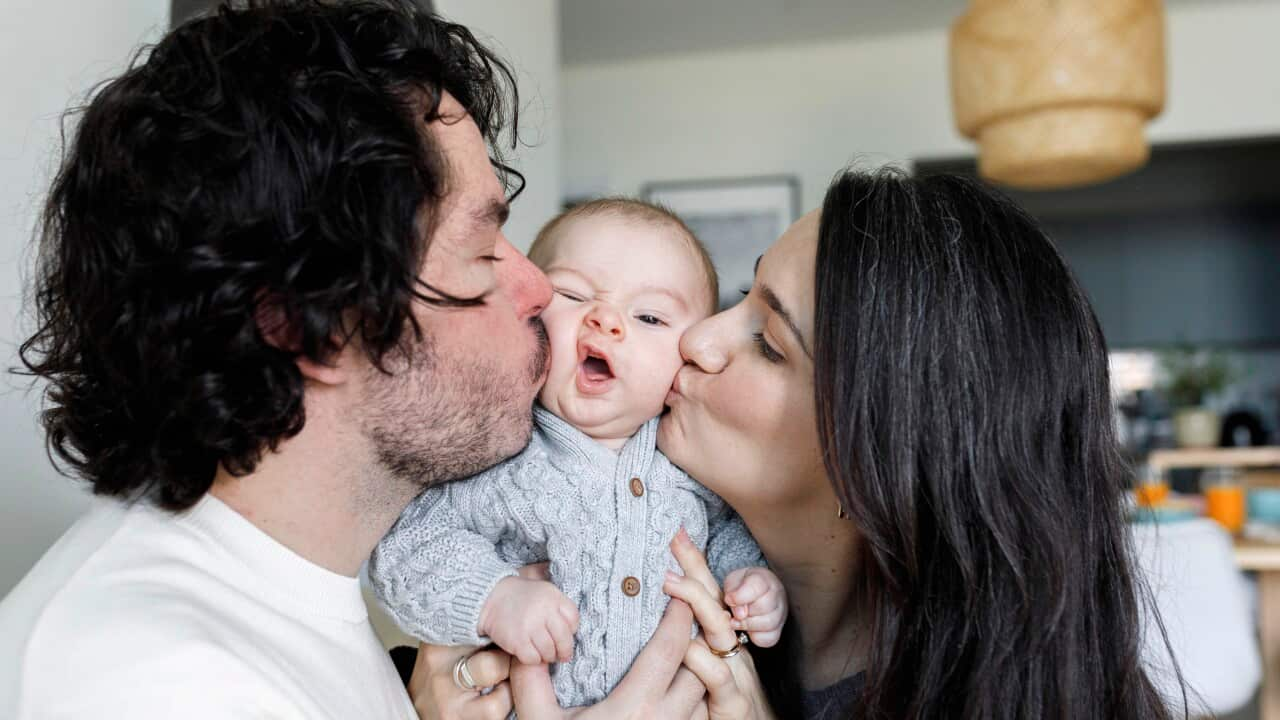Key Points
- Moderna's bivalent vaccine is only available as a third and a fourth vaccine dose in Australia
- It generates a 1.6 to 1.9 times higher antibody response than the original vaccine
- Health Minister Mark Butler urges Australians to take any vaccine available to them
On 12 September, Federal Health Minister Mark Butler allowed the use of Moderna's bivalent vaccine as a third or a fourth vaccine in people aged 18 and over.
The updated vaccine targets two different COVID-19 variants: the original 2020 strain and the Omicron variant BA.1.
How effective is Moderna's bivalent vaccine?
The Australian Technical Advisory Group on Immunisation (ATAGI) says Moderna's bivalent vaccine generates a 1.6 to 1.9 times higher level of antibody response against multiple variants of Omicron, including BA.1 and BA.4/BA.5, compared with the original vaccine.
However, ATAGI adds it remains uncertain how the higher antibody response translates into clinical protection.
"Modelling data suggests that there may be a small increment in protection over an original booster, particularly in those with lower levels of pre-existing immunity, such as people who have only had two COVID-19 vaccine doses or who are a longer period from previous infection or vaccination," it said.
Dr Soumya Swaminathan, Chief Scientist at the World Health Organization, says there are two types of bivalent vaccines - the first targets the original COVID virus and the BA.1 sublineage of Omicron, and the other targets the original virus and BA.4/BA.5.
Australia, the UK and the European Medicines Agency have approved the bivalent vaccine that targets BA.1, while the US Food and Drug Administration authorised the one that targets BA.4/BA.5.
"Now, what they have shown in lab studies is that these bivalent vaccines help you to mount a slightly higher antibody response against Omicron," Dr Swaminathan said.
"But whether that's going to translate into any kind of clinical efficacy, we don't know because we don't really have those studies. And, so time will tell whether we need this type of Omicron-specific vaccine.
At the moment, we believe that the original vaccines that we're all using today are working very well
"And a third dose is important for everyone, and a fourth dose for a very high-risk group," Dr Swaminathan said.
When will it be available to the public? Should you wait?
The Department of Health and Aged Care says that the first batch of the bivalent vaccine has arrived and undergoing testing by Therapeutic Goods Administration (TGA).
But the updated vaccine will only be rolled out once the original Moderna COVID-19 vaccine is exhausted.
Mr Butler said the government would be able to roll out the vaccine over "the coming couple of weeks."
"It's up to the TGA to complete its batch testing, obviously," Mr Butler told journalists on 26 September.
I do say to the Australian people, take whatever booster is available to you now - they are all very effective, particularly in preventing severe disease.
"But the real challenge is for people to take their third dose. There are still well over five million Australians who have gone well over six months since receiving their second dose. And so, I say to those Australians, get a booster. It's good for your immunity, and it's particularly good for protection against severe disease."

Associate Professor Sanjaya Senanayake. Credit: Associate Professor Sanjaya Senanayake
"We have come out of terrible winter with COVID and influenza and overburdened hospital," says Prof Senanayake.
"Even with the warmer season ahead, we must remember that COVID will be very active in the Northern Hemisphere.
"Visitors from these regions can reintroduce the virus back into the community, potentially with new mutation, so being up to date with your vaccination will be crucial in protecting yourself against severe disease," adds Prof Senanayake.
Will the COVID vaccine become like the annual flu shot?
Department of Health and Aged Care and the ATAGI have currently not advised for extra doses other than the third and fourth vaccine for eligible Australians.
However, Prof Senanayake says that the COVID virus is "acting like a seasonal virus like influenza."
"It's likely, that we will need COVID boosters in the future. How often we will need those COVID boosters will depend on the types of vaccines developed," he said.
How are bivalent vaccines administered overseas?
The US has approved both Moderna's bivalent vaccine in individuals aged 18 and over, while Pfizer's bivalent vaccine can be given to anyone aged 12 and over in the states.
These boosters are given two months after the last dose.
However, the UK was the first country to approve Moderna's bivalent vaccine on 15 August.
Canada, Singapore and Japan are among other few countries that have provisionally approved Moderna's updated vaccine.
SBS is committed to providing all COVID-19 updates to Australia's multicultural and multilingual communities. Stay safe and stay informed by regularly visiting the






